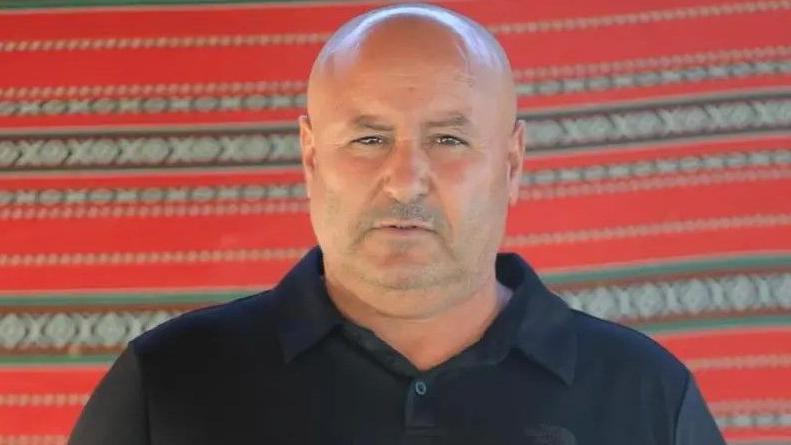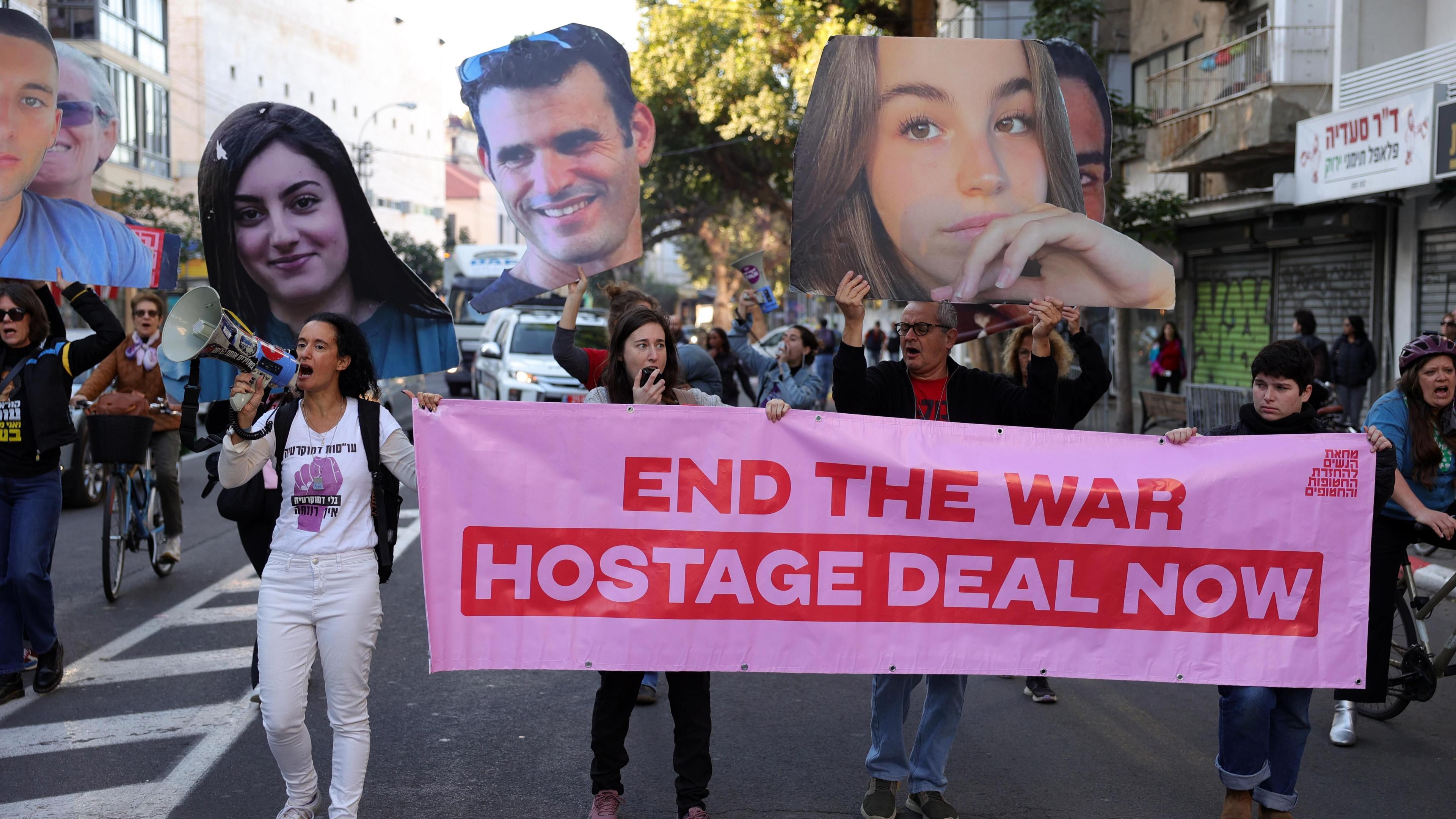Israeli military says body of Bedouin hostage found in Gaza

Yousef Zyadna was abducted by Hamas gunmen along with three of his children, two of whom have been released
- Published
The Israeli military says its troops have found the body of a Bedouin Arab hostage held by Hamas in Gaza, as well as evidence that suggests another may also be dead.
The body of Yousef Zyadna, 53, was recovered from an underground tunnel in the southern Rafah area on Tuesday.
The troops also made what the military described as "findings... which raise serious concerns" for the life of his son, Hamza, 22, who was also abducted by Hamas gunmen during the 7 October 2023 attack on southern Israel.
Two of Hamza's siblings, Aisha and Bilal, were seized alongside them at a kibbutz farm that day. But they were among 105 hostages released during a week-long ceasefire in November 2023.
Israeli Prime Minister Benjamin Netanyahu expressed "deep sorrow over the bitter news that the Zyadna family received today".
The news came shortly before US Secretary of State Antony Blinken told reporters that US, Qatari and Egyptian mediators were "very close" to brokering a new ceasefire and hostage release deal between Israel and Hamas.
Meanwhile, at least 14 Palestinians were killed in Israeli air strikes across Gaza on Wednesday, according to medics and first responders.
The Israeli military also said it intercepted a rocket fired from southern Gaza.
Hamas lists 34 hostages it may free under ceasefire
- Published6 January
'Enough is enough': Bedouins plea for Hamas hostage release
- Published30 November 2023
Yousef Zyadna lived in a Bedouin village in Israel's southern Negev desert.
On the morning of 7 October 2023, he went to work at the dairy farm of Kibbutz Holit, where he was joined by his three children for a picnic.
They were among the 251 Israelis and foreign nationals taken hostage when hundreds of Hamas-led gunmen stormed across the nearby Israel-Gaza perimeter fence and killed about 1,200 other people.
Israel launched a campaign to destroy Hamas in response to the attack. More than 45,930 people have been killed in Gaza since then, according to the territory's Hamas-run health ministry.
Israel says 95 of the hostages remain in Gaza, of whom 34 are presumed dead, as well as another four Israelis who were abducted before the war, two of whom are dead.
The Israeli military said Yousef Zyadna was "killed in captivity" and that his family was notified following an identification procedure carried out by National Institute of Forensic Medicine and the Israel Police.
Spokesman Lt Col Nadav Shoshani told reporters that special forces found his body close to the bodies of several armed guards, and that it was not clear how or when he died.
"We are currently investigating the circumstances of his death and we are also investigating the findings regarding his son," he said, according to Reuters news agency.
"These findings raise concern for his life and they are still being examined at this moment," he added, without giving any details.
Earlier, Defence Minister Israel Katz wrote on X that both Yousef and Hamza's bodies had been recovered.
Prime Minister Netanyahu said: "We hoped and worked for the safe return of the four members of the [Zyadna] family held hostage by Hamas."
"We returned the children Bilal and Aisha in November 2023 and wanted to bring back Yousef and Hamza as well. I send heartfelt condolences to the family."
He also pledged that Israeli security forces would "continue to make every effort to return all of our hostages, the living and the deceased".
The Hostages and Missing Families Forum, which represents some hostages' families, expressed regret that potential ceasefire and hostage release deal being discussed in Doha "comes far too late for Yousef".
"Every day in captivity poses an immediate mortal danger to the hostages who have managed to survive for 15 months, and threatens the possibility of returning the deceased for burial," a statement said.

Hostages' families called on the Israeli government to agree a deal with Hamas at a protest in Tel Aviv
On Sunday, Yousef Zyadna's name featured on a list of 34 hostages which a senior Hamas official said the group was willing to release in the first phase of a ceasefire deal.
The Israeli prime minister's office denied that Hamas had provided Israel with such a list, saying it was "originally passed from Israel to intermediaries as early as July 2024". It also said Israel had not received confirmation about whether those on the list were alive or dead.
Hamas's decision to share the list with the media was seen as an attempt to increase public pressure on the Israeli government as the negotiations resumed in Doha.
On Wednesday, Antony Blinken said a potential deal was close and that he hoped to "get it over the line" before President-elect Donald Trump takes office on 20 January.
"I believe that when we get that deal, and we'll get it, it'll be on the basis of the plan that President [Joe] Biden put before the world, back in May," the US secretary of state added.
Trump's Middle East envoy, Stephen Witkoff, also told a news conference on Tuesday that "a lot of progress" had been made at the talks and that he was planning to join them.
Trump meanwhile repeated his threat that "all hell will break out in the Middle East" if Hamas did not release all the hostages within the next 12 days.
Hamas official Osama Hamdan said in response: "I think the US president must make more disciplined and diplomatic statements."
Both sides have accused each other of obstructing progress towards a deal by making unreasonable demands.
Hamas wants Israel to agree to a permanent ceasefire and full withdrawal from Gaza. Israel says it will not end the war until Hamas's military and governing capabilities are dismantled and all the hostages are brought home.